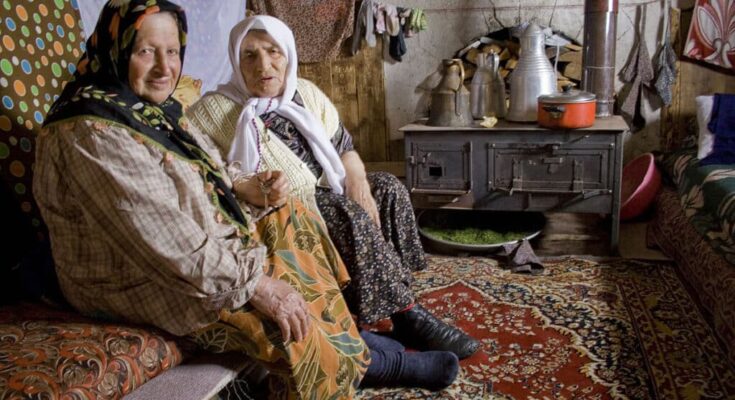
Romeyka, an endangered dialect of Greek spoken in the region of Trabzon (Trapezounta) and Pontus in northern Turkey, may get a new lease of life.
Ioanna Sitaridou, a professor of Spanish and historical linguistics at the University of Cambridge, who has been studying the dialect for years, has launched The Crowdsourcing Romeyka project inviting native speakers across the world to upload a recording of themselves talking in the language.
With its remaining speakers aging, the dialect is now threatened with extinction, leading Sitaridou to launch a “last chance” crowdsourcing tool to record its unique linguistic structures before it is too late.
According to UNESCO, the Greek dialect it is “definitely endangered” and the Encyclopedia of the World’s Endangered Languages lists it as “severely endangered”.
How many are speakers of the Greek dialect Romeyka
The precise number of speakers of Romeyka is hard to quantify. It has no written form but has survived orally in the mountain villages around near the Black Sea coast.
Its speakers are Muslims but many also trace their lineage back to the Pontic Greeks, who mostly left Turkey for Greece during the population exchanges of the early 20th century.
“There is a very significant diaspora which is separated by religion and national identity [from the communities in Turkey], but still shares so much,” Sitaridou told the Guardian.
Sitaridou has established that rather than having developed from modern Greek, Romeyka descended from the Hellenistic form of the language spoken in the centuries before Christ, and shares some key features with ancient Greek.
The Greek academic has concluded that “Romeyka is a sister, rather than a daughter, of modern Greek”, a finding she says disrupts the claim that modern Greek is an “isolate” language, meaning it is unrelated to any other European language.
Modern Greek and Romeyka are not mutually intelligible, says the academic; she suggests that an apt comparison would be speakers of Portuguese and Italian, both of which derive from Vulgar Latin rather than from each other.
Though the history of the Greek presence in the Black Sea is not always easy to disentangle from legend, the Greek language expanded with the spread of Christianity.
“Conversion to Islam across Asia Minor was usually accompanied by a linguistic shift to Turkish, but communities in the valleys retained Romeyka,” Sitaridou told the Guardian newspaper.
In contrast, Greek-speaking communities who remained Christian grew closer to modern Greek, especially because of extensive schooling in Greek in the 19th and early 20th centuries.
Related: ‘Romeyka’ The Ancient Greek Dialect Spoken in Northern Turkey



